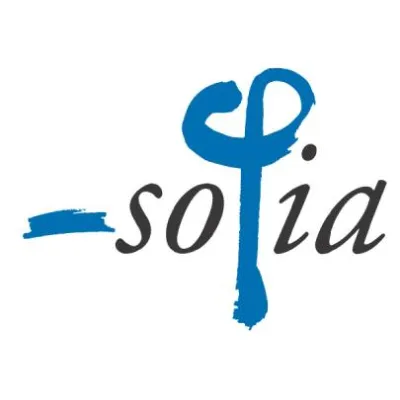Bulgaria

Jelena Erdeljan
Prof. Jelena Erdeljan graduated from the Department of Art History, Faculty of Philosophy, University of Belgrade. Defended her M.A. and Ph.D. theses at the same Department. Employed at the Department of Art History, Faculty of Philosophy, University of Belgrade and engaged in teaching a number of courses at all levels of university education (Art of Ancient Greece, Art of Ancient Rome, Early Christian and Eary Byzantine Art, Art of the Early Middle Ages in Byzantium and Western Europe, Art of the High Middle Ages in Byzantium and Western Europe, Art of the Late Middle Ages in Byzantium and Western Europe and others). Founder and director of Centre for the Study of Jewish Art and Culture at the Faculty of Philosophy, University of Belgrade. Founder and lecturer at annual International Academic Workshop Jewish Art and Tradition at the Faculty of Philosophy, Belgrade and editor of Menora, Collection of Papers from the Workshop Jewish Art and Tradition. Lecturer at interdisciplinary MA program Religion in Society, Culture and European Integration at the University of Belgrade. Member of editorial board of Zograf (Institute for Art History, Faculty of Philosophy, Belgrade) and Zbornika radova Narodnog muzeja u Beogradu (National Museum in Belgrade). Member of several research projects in Serbia and abroad. Author and editor of a number of monograph studies and miscellanies, as well as papers published in scientific journals in Serbia and abroad.
The ancient, medieval and the world of the pre-modern era are replete with objects, imagery created in different media, as well as architectural structures, which are not only bearers of religious significance but also points of divine manifestation, points of contact with the higher reality. This designates them as vessels, mediators and actors in the power play of political and important factors i.e. subjects of networks of connectivity. With this in mind, we can definitely state that Jewish presence and pertaining visual culture in the Balkans in the pre-modern era, from antiquity to the age of Sabbatei Sevi, plays a highly significant but to date inadequately and insufficiently studied phenomenon. Elements of Jewish visual culture to be examined as part of my project include funerary monuments and cemeteries, books, book production, illustration and circulation, synagogues and synagogal art and liturgical objects, textiles and clothing as markers of Jewish identity. Key points to be studied on the geopolitical map of the Jewish Balkans include such significant centers of Jewish life as Stobi, Plovdiv, Sofia, Thessaloniki, Ioannina, Bitola, Sarajevo, Niš, Belgrade and others.
Jewish art; visual culture; Balkans; Pre-Modern era
